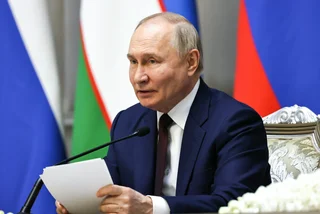Czechia has announced that it plans to continue its ban on issuing visas and residence permits to Russians and Belarusians in response to the ongoing Russia-Ukraine war. The new regulation aims to replace the current restrictive measures, set to expire on March 31. The government has announced no exact date for the new rules.
Shortly after Russia's widescale attack on Ukraine in 2022, the Czech center-right coalition government decided to stop issuing visas to Russian and Belarusian citizens, except in humanitarian cases. Since last year, the ban has also applied to citizens of the Russian Federation and Belarus who are also citizens of another country.
The Czech Foreign Affairs Ministry said Monday: "In light of the ongoing invasion of Ukraine by Russia, it is necessary for Czechia to take measures to protect its national security and interests."
According to the latest statistics from the Czech Statistical Office, 41,600 Russians with residence permits live in Czechia, and 7,675 Belarusians (as of the end of 2022).
Some exceptions apply
The new regulation does not target Russians and Belarusians with a residence permit in Czechia. It also excludes applications for short-term visas if the applicant is a family member of a Czech or EU citizen. Additionally, it does not cover requests for a visa, long-term, or permanent residence permit if the applicant's stay is “in the interest of the Czech Republic.”
The regulation also makes exceptions for Belarusians seeking a residence permit to study at a university based on scholarships provided by Czechia, the EU, or international organizations. Family members of a foreigner with a valid residence permit in Czechia are also exempt.
The ban has sparked mixed reactions. Some argue it is necessary to show solidarity with Ukraine, while others believe it will negatively affect Czechia's economy and tourism industry. However, the government maintains that the decision is in the best interest of Czechia and its citizens.













 Reading time: 1 minute
Reading time: 1 minute 



























